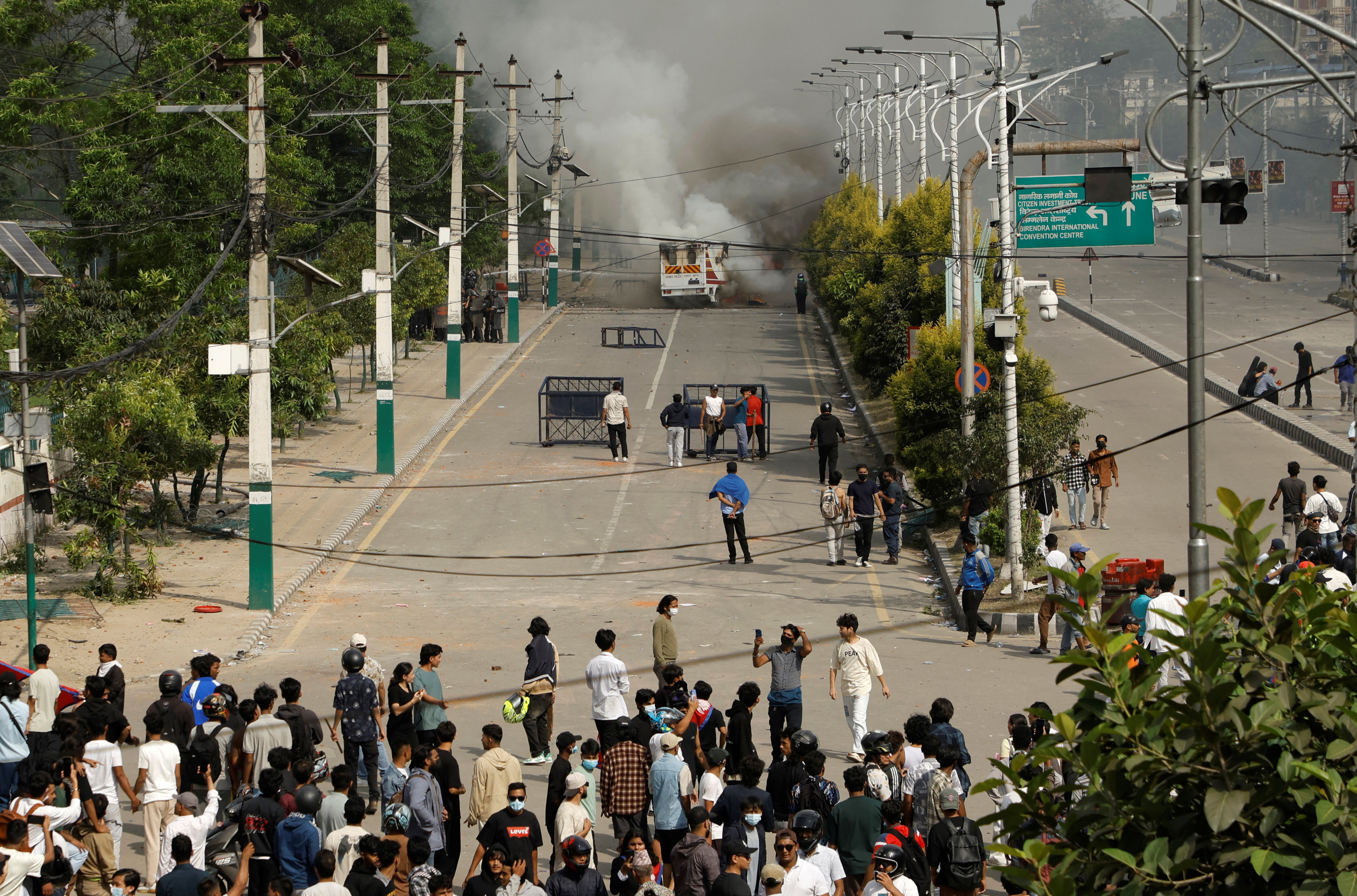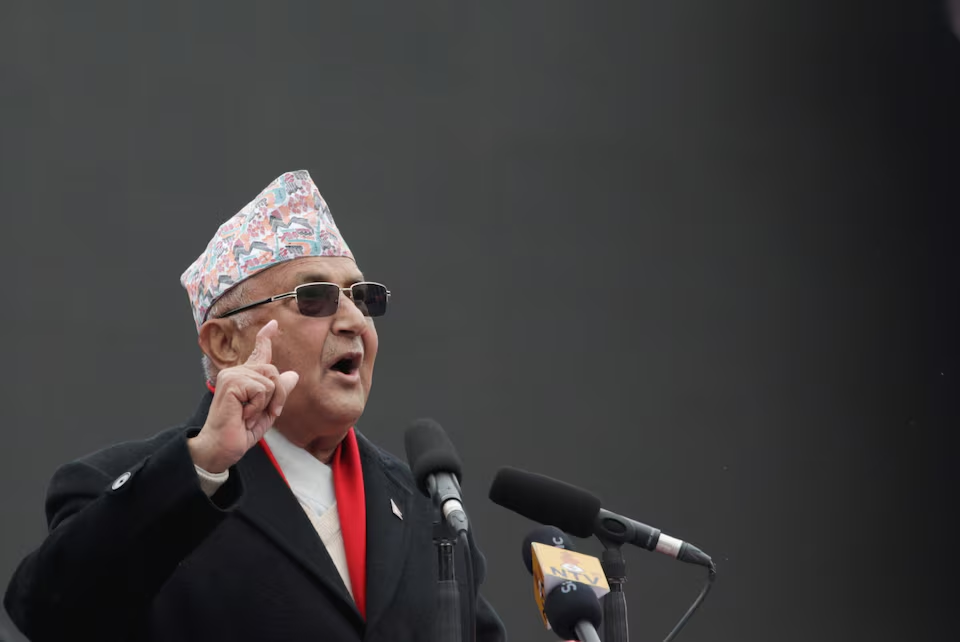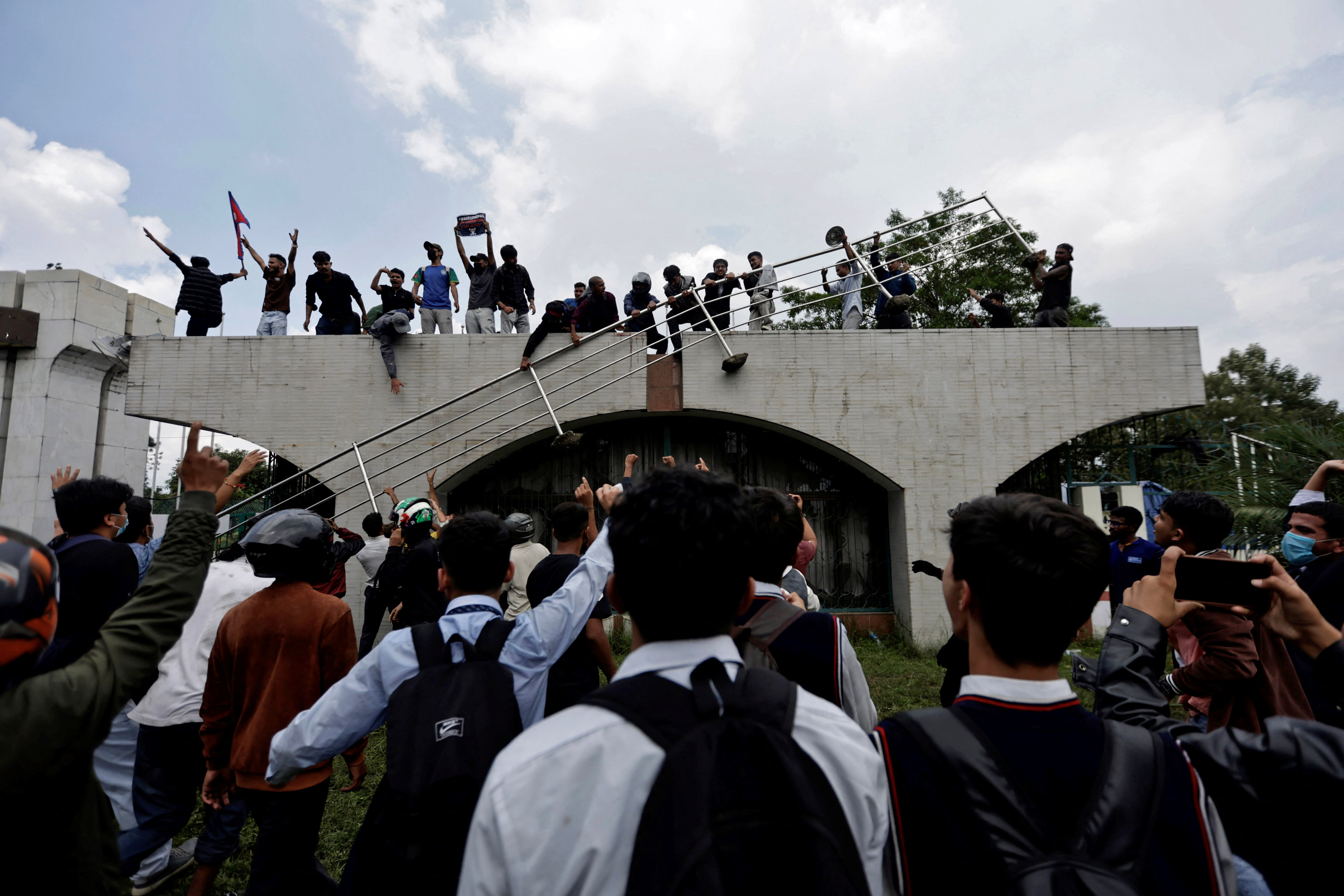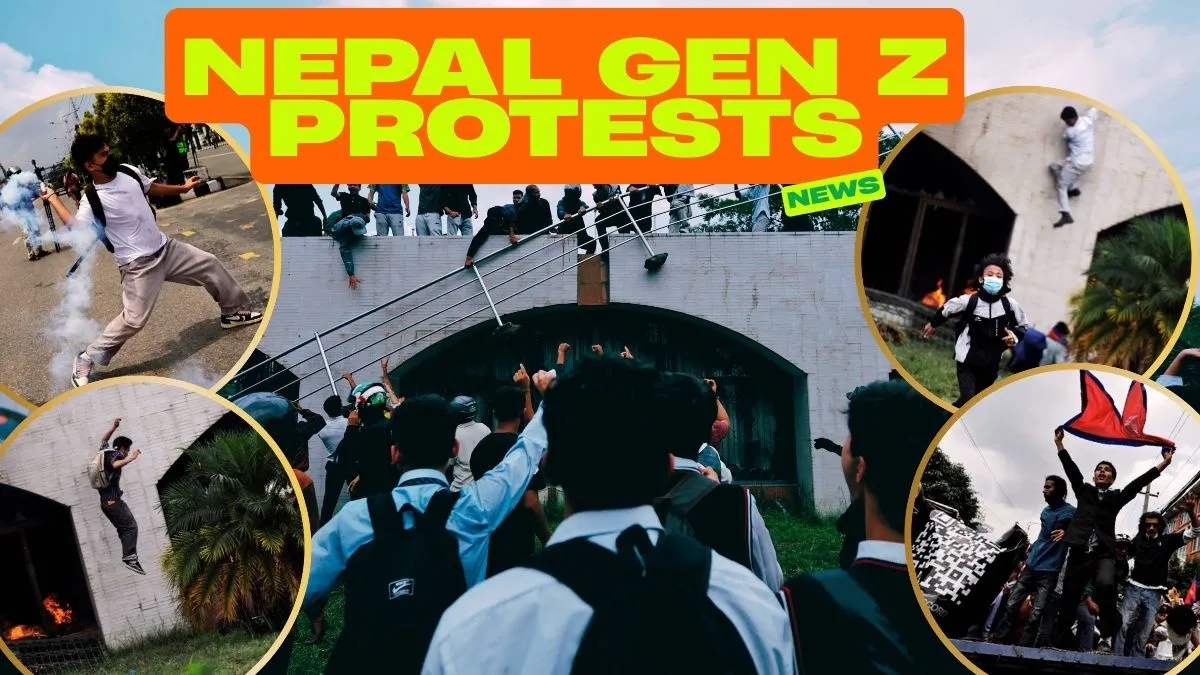- By Ajeet Kumar
- Mon, 08 Sep 2025 04:18 PM (IST)
- Source:JND
Nepal Protests Explained: Tens of thousands of protesters, mainly Gen Z, took to the streets of Nepal’s capital on Monday to vent their anger against a decision by authorities to block most social media platforms including Facebook, X and YouTube, saying that the companies had failed to register and submit to government oversight.
Over a dozen killed and more than 100 injured after police in Nepal fired tear gas and rubber bullets and used water cannons to disperse Gen Z protesters, mostly young people who tried to break into Parliament during a protest. The KP Sharma Oli government, who has been ruling the Hindu nation, has ordered Army deployment in the national capital, Kathmandu.
1. What happened in Nepal?
Nepal on Thursday banned social media sites such as Facebook, Instagram and YouTube among others for failing to register with the Ministry of Communication and Information Technology within the given deadline.

(CREDIT: REUTERS)
2. Why did Nepal ban social media platforms?
The government said social media users with fake IDs have been spreading hate speech and fake news, and committing fraud and other crimes via some platforms. According to the notice issued by the Nepal ministry, the social media companies were given seven days from August 28 to register. Even when the deadline expired on Wednesday night, none of the large social media platforms — including Meta (Facebook, Instagram, WhatsApp), Alphabet (YouTube), X (formerly Twitter), Reddit, and LinkedIn —submitted applications.
3. What PM Oli said on social media ban
The prime minister said the party is not against social media “but what cannot be accepted is those doing business in Nepal, making money, and yet not complying with the law”, MyRepublica reported.“The independence of the nation is greater than the loss of jobs of a handful of individuals. How can it be acceptable to defy the law, disregard the constitution, and disrespect national dignity, independence, and sovereignty,” he said.

(CREDIT: REUTERS)
4. What are Gen Z demands?
Thousands of youths, including students, many in their school or college uniforms and carrying the national flag and placards, are protesting against the alleged corruption and demanded to lift complete ban on social media platforms.
Protesters carried placards carrying slogans such as "Shut down corruption and not social media", "Unban social media", and "Youths against corruption", as they marched through Kathmandu.

(CREDIT: REUTERS)
5. Is Nepal facing corruption?
Many people in the Himalayan nation think corruption is rampant, and the government of Prime Minister KP Sharma Oli has been criticised by opponents for failing to deliver on its promises. Nepal's social media shutdown comes as governments worldwide, including the US, EU, Brazil, India, China and Australia, take steps to tighten oversight of social media and Big Tech due to due to growing concern about issues such as misinformation, data privacy, online harm and national security.
Critics say many of these measures risk stifling free expression, but regulators say stricter controls are needed to protect users and preserve social order. Around 98 per cent of Nepal's 30 million people use the internet.
(With inputs from agencies)

